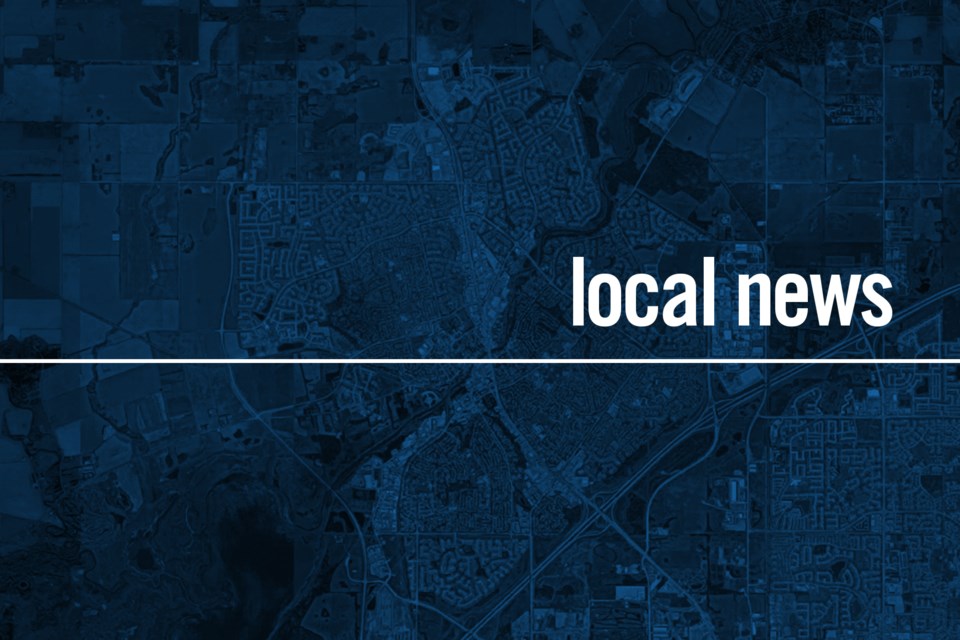The Alberta Legislature reconvened last week with a promise from the government to introduce the democratic reform that was a cornerstone of the 2019 UCP election platform.
“We're making it a little more accountable and a little more direct democracy for Albertans,” said Morinville-St. Albert MLA Dale Nally.
On Feb. 24, UCP House Leader Jason Nixon outlined the spring session. The session will be a continuation of the fall sitting with a focus on strengthening the health-care system to fight COVID-19 and creating jobs for economic recovery.
Toward the end of the month, the government will be moving forward with legislation that includes the Citizen Initiative Act, which will allow Albertans to petition the government to legislate policy or constitutional proposals after gaining a certain number of signatures on a specific issue.
Another platform-promised issue is recall legislation. Nixon said if it passes, the government has plans to have the act in place by the end of the term; however, the chief electoral officer will need time to put the legislation in place.
Nally said there’s been talk about MLA recall in Alberta for a long time.
“No one has been able to get (recall legislation) across the finish line and we're going to do that, we're going to be moving forward with MLA recall legislation as well as Citizen Initiatives, because that way citizens have control, and MLAs will be accountable and they'll be held accountable,” he said.
For Nally, the most significant portion of the spring session is a $900-million investment the government made in health care spending for the 2021-22 budget above and beyond its usual spend, which helped increase the health budget by four per cent for the coming year.
“It's going to translate into 3,000 new health care positions, and it will without a doubt be the largest, most significant health care spend in our province’s history,” he said.
Nally said he is also proud of legislation coming up that will end unprompted street checks, and of an electoral statute coming forward with regard to campaign finance.
“We will be capping all spending for single donations to $30,000 for contributions to political action committees, and I think that is going to be a step in the right direction for campaign finance reform,” he said.
On the personal end, Nally will continue to push the Natural Gas Strategy and Vision and he is releasing a hydrogen strategy sometime in the coming months.
“I know that industry is very excited about that. So, we're looking forward to that, and also I'm forecasting some positive economic announcements from my file but nothing that I can go into any appreciable detail now,” he said.
The spring session started when the provincial budget was tabled on Feb. 25. This was the first budget to be tabled under Bill 4, which implemented a fixed budget period. Budgets must be released each year at the end of February.
St. Albert NDP MLA Marie Renaud speculated the government chose the date they chose because they didn’t want to be in the Legislature longer than they needed to be.
“Typically, we will have some activities, whether it's questioning or debate, or sometimes Speech from the Throne, before there is a budget – but none of that happened this year. Then, which was also unique, is that immediately following the budget we had a one-week constituency break,” she said.
Nixon said fall would be a more appropriate time to have a throne speech as Alberta will be in a very different scenario at that point and a speech at that time will set the stage for the next two years of the UCP government’s mandate.
MLAs will return to the house March 8. The constituency break, Nixon said, was to give MLAs a chance to go over documents before the estimate period starts.
Renaud said this reduces the overall time they can spend debating but it allows them to do work in their constituencies and it also gives them time to prepare for estimates and untangle complex budget documents.
“I think we all are feeling sort of (an) overwhelming need for casework in our constituencies. There is a never-ending stream of work in that regard. So, you know, while our focus is away from the Legislature right now, it's right back on the constituency,” she said.
Apart from constituency work, Renaud’s big focus right now is on estimates and trying to understand the budget. She has concerns with the budget and what she said are widespread reductions and cuts and failures to meet growth in terms of population or growth in terms of inflation in things like infrastructure and education.
Renaud will also be trying to get a better sense of the economic recovery and job plan.
“(The budget) is supposed to take us out of COVID into recovery, but we're just not seeing those investments that are going to produce those anticipated outcomes ... but also beyond that just make some recommendations about, you know, there are different ways to do this, and government doesn't tend to listen to what we're saying but we'll keep proposing,” she said.




